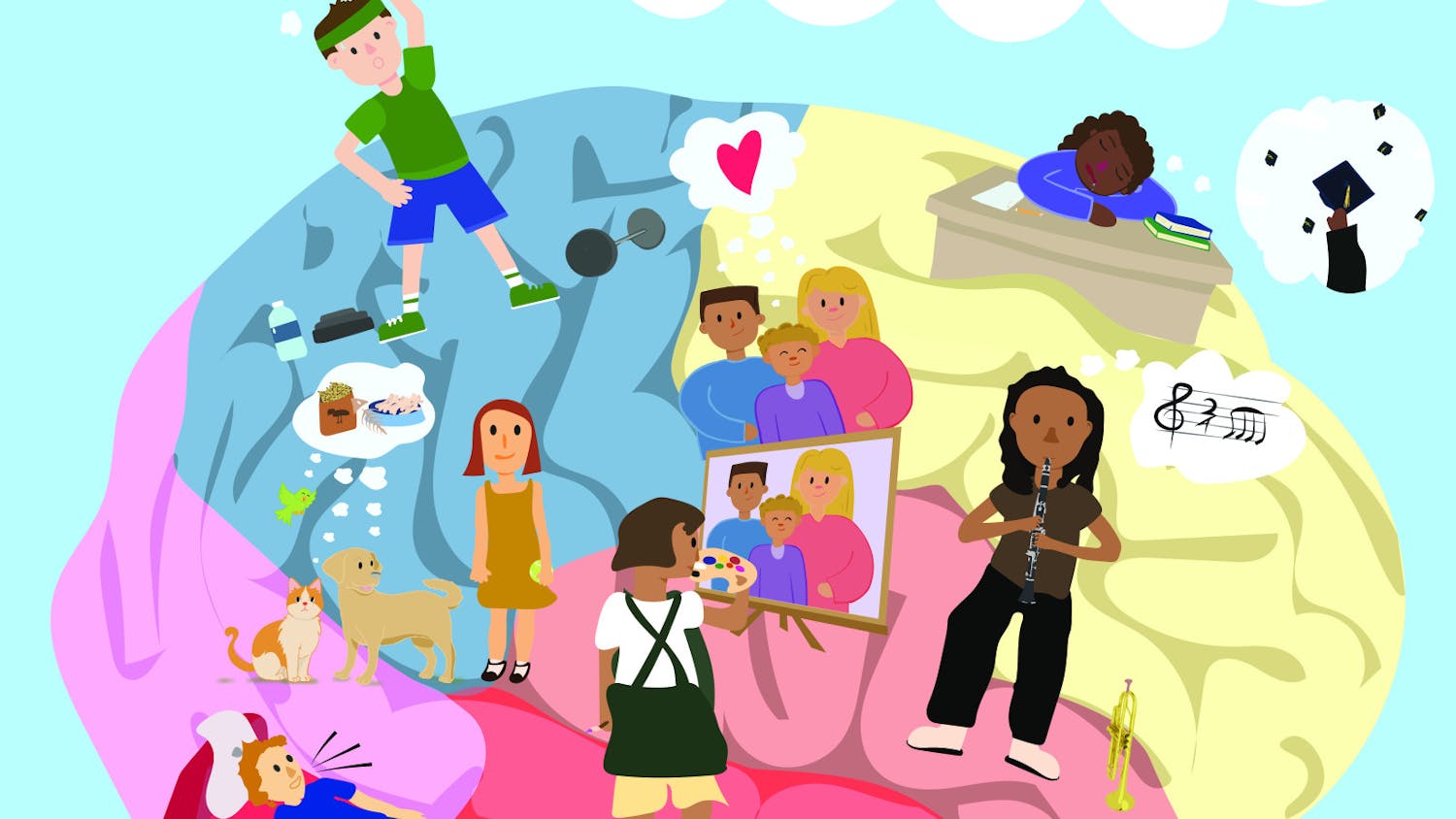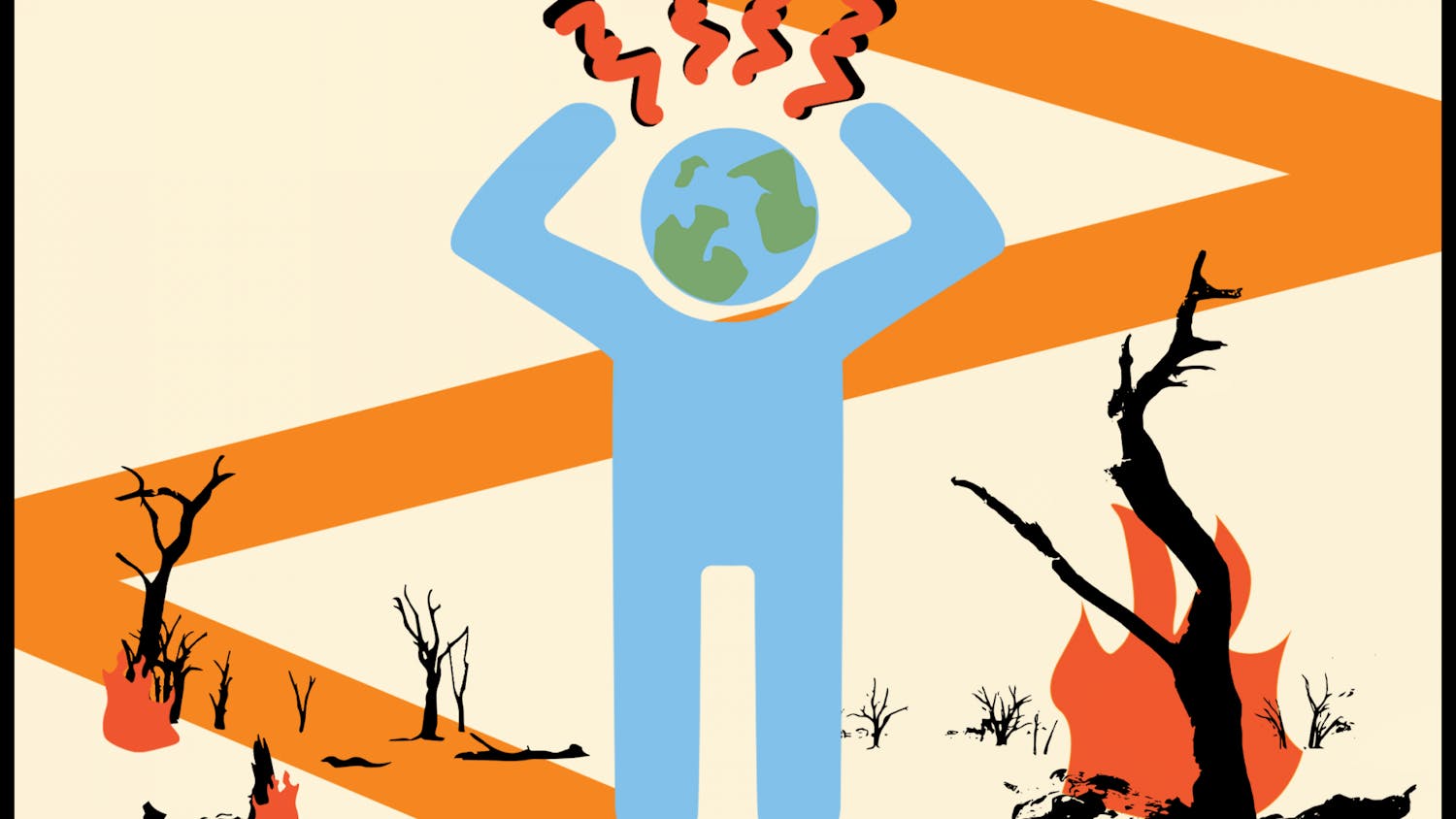It starts in subtle ways: a little shaking, some quickened breathing. No one else will notice, but you know the train has left the station. There’s no way to stop it.
Crippled, weakened and gasping, you’ve become a prisoner to your own bedsheets. Pillows become either punching bags or a gag to muffle screams. But the worst is still coming.
In a matter of moments, you turn from a human being to an infant, incapable of controlling your movement, breathing or thoughts. Incomprehensible chaos ensues: thinking of everything at once and nothing at the same time while it feels as if you are being ripped apart.
Control of breathing comes back first, then your heart slows, and finally, the shaking ends. As quickly as it came, without warning or evidence, it all stops. You’re left lying in silence, motionless. It’s almost a slap in the face. After that display of unbridled terror, everything goes back to normal.
That’s a panic attack.
Or at least, that’s how I have traditionally experienced them.
I began having panic attacks in high school — sometimes three in one week. Luckily for me, I had a supportive family and friends who encouraged me to get treatment. My senior year, I was diagnosed with generalized anxiety disorder.
It took some therapy and a lot of practice to get me where I am today, and the journey is still far from over. But now I know how to deal with my illness. Even when I know an intense panic attack is coming, I know what to do to stop it before it starts.
If you have anxiety or experience panic attacks, I’m writing this for you: You are not alone, and things don’t have to be this way.
In fact, anxiety disorders affect 40 million Americans and cost more than $42 billion a year.
It can feel isolating, though. It’s difficult to talk to people who seem to not have a care in the world when you’re worried about stuff you know doesn’t make sense. Every time I walk in a room, I look for every exit in case someone becomes the next mass shooter. When I walk down the street, I constantly watch cars to make sure they aren’t running off the road to hit me. I know my worries are mostly unfounded, but they are relentless.
Making the effort to feel better is the hardest step, but it’s also the first one. Anxiety is daunting. My mistake was thinking it was bigger than me. Any progress seemed null when the next panic attack rolled around.
But nothing is bigger than you. Once you realize that, coping with anxiety becomes easier.
The next biggest problem I had was getting help. The isolation that comes with anxious thoughts makes it difficult to talk to people about what you’re feeling. But everyone understands anxiety. People know what it feels like. It’s an emotion. When you talk to people you trust and care about, your words will not fall on deaf ears.
UF has great resources that help immensely. I went to one-on-one counseling at the Counseling and Wellness Center two years ago this semester, and I progressed much faster with guidance than I would have otherwise. Therapy would have been too expensive otherwise, but the center offers free help for students.
Don’t doubt people’s ability and desire to help you.
More importantly, don’t forget you have that same capability.
Don’t be a prisoner of your mind any longer.
Justin Jones is a UF journalism senior. His column runs on Thursdays. A version of this column ran on page 6 on 11/21/2013 under the headline "Panic switch: Recognizing, treating anxiety"





